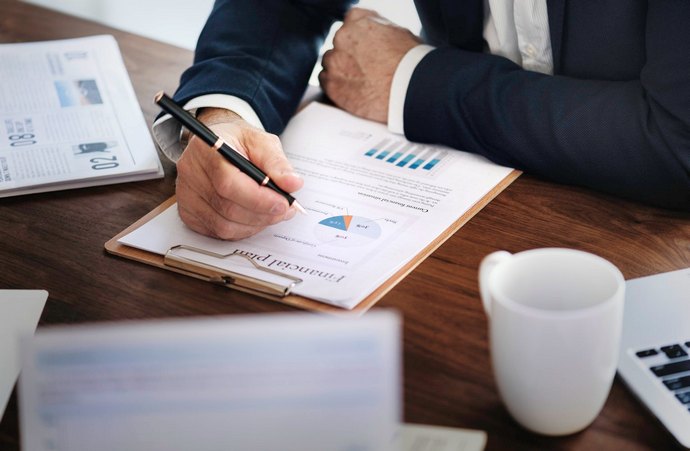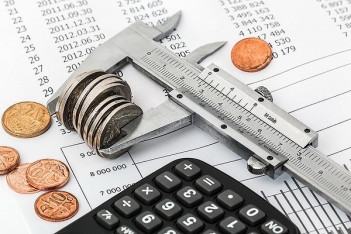I am studying in the third year of the State University of Economics and Technology.I specialize in contractual, economic and corporate law, in particular, I provide consultations and write articles.
VAT (value added tax)
VAT is a consumption tax that is included in the price of goods or services and is paid by the final consumer, but is accounted for and paid by the seller to the state budget. The basis for calculating VAT is the added value, which results from the inclusion of the cost of resources (production factors used by the seller) in the final product or service.
VAT refund for legal entities: main aspects
Obtaining VAT compensation from the state is an important procedure for businesses that are entitled to a refund of this tax. Below is a detailed description of the process and the conditions under which businesses can expect to receive compensation.
The right to VAT compensation
First of all, in order to have the right to receive VAT compensation, the company must be registered as a VAT payer with the relevant authority. This is the main condition for participation in the VAT system and subsequent reimbursement.
Collection and storage of documentation
The enterprise must systematically collect and store all documentation confirming the payment of VAT. This includes:
- Invoices showing the value of goods or services and the amount of VAT.
- Extracts from income and expense registers, where the payment of VAT must also be reflected.
- Tax reports and other documents that confirm the volume of transactions and the amount of VAT paid.
Submission of tax reporting
The company must regularly submit tax returns, which show all calculations with paid and accrued VAT. This is important for accounting for tax liability and tax credit.
Calculation of the amount of compensation
The amount of VAT compensation is calculated as the difference between the tax liability (the amount of VAT payable for the period) and the tax credit (the amount of VAT that was actually paid). If this difference is negative, the taxpayer is entitled to a refund.
Submitting an application for reimbursement
After the end of the reporting period, the company can apply for a VAT refund to the competent authority (usually the tax or other relevant service). The application must contain all the necessary documentation that confirms the legitimacy of the claim for compensation.
Verification and refunds
The body to which the application is submitted checks it for compliance with the requirements and the authenticity of the documentation. In the case of a positive decision, the amount of VAT is reimbursed to the company's account.
Monitoring and compliance
After receiving the refund, the company must monitor its activities and ensure compliance with VAT tax requirements. This includes regularly updating tax reporting and keeping up-to-date documentation.
VAT payment conditions for legal entities:
Here is a detailed description of the rules and conditions for obtaining a VAT refund that apply in some countries:
The initiator is a VAT payer
Only a VAT payer, i.e. a legal entity or an individual who is registered as a VAT payer and carries out transactions subject to VAT, can receive a VAT refund.
Full payment of VAT in cash
In order to receive a refund, it is necessary to pay VAT in actual money, that is, by non-cash or cash settlement. Barter transactions, receipt of goods without payment or other forms of payment are not accepted.
Reimbursement within the limit of VAT registration
VAT payers have a limited limit on VAT refunds for a certain period, which is indicated on their registration card (RC). If the compensation amount exceeds this limit, part of the compensation can be carried over to the next period.
No VAT debts
VAT payers must have a clean status regarding their tax obligations to the state. If there are VAT debts, the compensation is first directed to their repayment within the limit of registration.
These conditions contribute to the effective use of the VAT refund system, ensuring honesty and transparency in calculations between VAT payers and the state budget.
Procedure for receiving VAT compensation:
Step 1: Filling out the main part of the VAT tax return
Collection of documentation The VAT payer collects all the necessary documentation confirming his VAT transactions, such as invoices, acts, tax invoices, etc.
Filling out the main declaration The payer fills out the main part of the VAT tax declaration, which shows all the calculated and paid VAT amounts for the reporting period.
Step 2: Filling out Appendix D3 and calculating the amount of compensation
Filling out Annex D3 The VAT payer fills out Annex D3 to the tax declaration. In this appendix, it is necessary to provide the calculation of the amount of VAT that is subject to reimbursement.
Step 3: Filling out Appendix D4 and submitting an application for reimbursement
Filling out Annex D4 The VAT payer fills out Annex D4, which is an application for VAT refund. This appendix indicates the amount of compensation, which is calculated in Appendix D3, and the necessary documents are attached.
Step 4: Submission of the declaration and Annexes D3 and D4 to the Tax Service
Submission of documents The payer submits a completed basic VAT tax return together with Annexes D3 and D4 to the competent authority - the Tax Service.
Checking and considering the application The Tax Service checks the submitted documents and considers the application for VAT refund. If all documents meet the requirements, the inspector can make a refund according to the calculation made by the VAT payer.
Important aspects:
- The VAT payer must comply with all deadlines for submitting tax returns and applications for reimbursement.
- Documentation must be clear and fully reflect all actual VAT transactions.
- In case of any doubt or need for additional information, the VAT payer can contact the Tax Service for advice.
This process allows VAT payers to receive a refund of VAT paid and reduce the financial burden associated with this tax.
Tax inspector lawyer free consultation with a tax lawyer:
Claiming a VAT refund can be a complex process, especially for businesses with complex operations or international operations. The help of a tax lawyer who has the necessary knowledge and experience in the field of tax legislation can be important here. Here are the aspects it can help in this process:
- Consultation with a tax lawyer. Tax lawyers can conduct a detailed consultation with the client on all requirements and procedures related to VAT reimbursement and explain the rules and conditions for obtaining compensation, as well as recommend the optimal approach to the preparation of documentation.
- Assistance from a tax lawyer preparation of documentation. A tax lawyer consultation in the field of tax law can help the company to collect and prepare the necessary documentation for submitting an application for a VAT refund. This includes checking the correctness and completeness of all invoices, deeds, tax invoices and other documents.
- Tax lawyer services for the preparation of declarations and applications. A tax lawyer can take responsibility for the preparation of basic VAT tax returns and related annexes, such as Annex D3 and Annex D4. He will ensure that all calculations of compensation amounts comply with the requirements of the law.
- Representation before the tax authority. If necessary, a tax law lawyer can represent the client's interests before the tax authority. He can communicate with tax inspectors, respond to their inquiries and protect the client's interests in relations with the tax service.
- Monitoring of changes in legislation. Tax lawyers will be aware of all changes in tax legislation that may affect the VAT refund process. Lawyer tax law will also ensure compliance with current requirements and use of all available benefits.
Receipt of VAT compensation is an important element of the company's financial planning, which allows to reduce the financial burden due to the reimbursement of the tax paid. Compliance with all requirements and rules ensures the successful conduct of the procedure and the avoidance of tax risks, which is why the tax lawyer is online consultation with a tax lawyer is extremely important.
Contact the legal marketplace CONSULTANT - we are always there to help you solve any legal problem. Leave your number and get legal assistance right now. Do not waste your time, our lawyers are already waiting for your call!




































